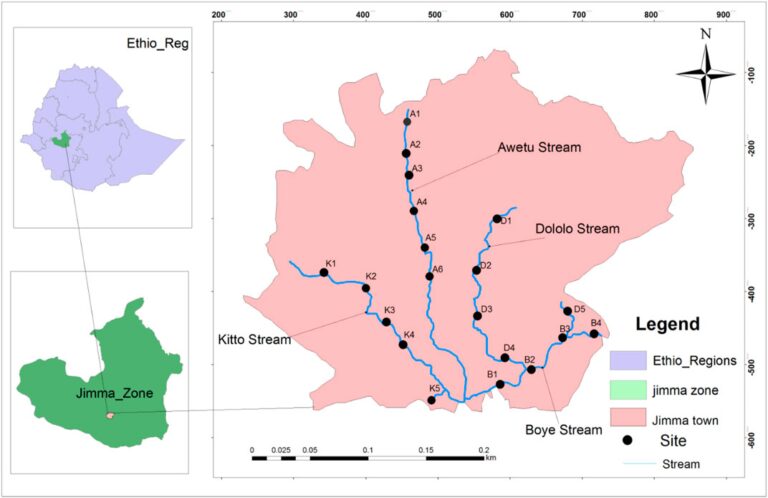The article investigates heavy metal contamination in sediments of streams within the Awetu watershed in southwestern Ethiopia, driven largely by anthropogenic activities, including industrial discharges and urban runoff. It highlights the increasing threat of heavy metals, which can negatively impact aquatic ecosystems and public health through bioaccumulation in food chains.
Sediment samples were collected from four streams—Awetu, Dololo, Kito, and Boye—revealing concentrations of metals such as arsenic (As), cadmium (Cd), chromium (Cr), lead (Pb), and mercury (Hg) exceeding permissible limits set by global standards. The study employed contamination indices, including the Geo-Accumulation Index (Igeo), Contamination Factor (CF), and Pollution Load Index (PLI), to assess contamination levels. Results showed that sediments were notably polluted, especially in areas with intensive human activities like garages and agricultural runoff.
Statistical analyses indicated significant variability in heavy metal concentrations among different sampling locations, with pollution highest in Dololo stream due to its proximity to urban waste sources. The article emphasizes the pressing need for effective waste management practices in cities to mitigate heavy metal pollution and protect aquatic environments. Recommendations for future research include monitoring seasonal variations in metal concentrations to further understand contamination dynamics.
Overall, the findings unveil alarming levels of sediment pollution, necessitating immediate action to prevent further deterioration of water quality and ecosystem health in the region.


